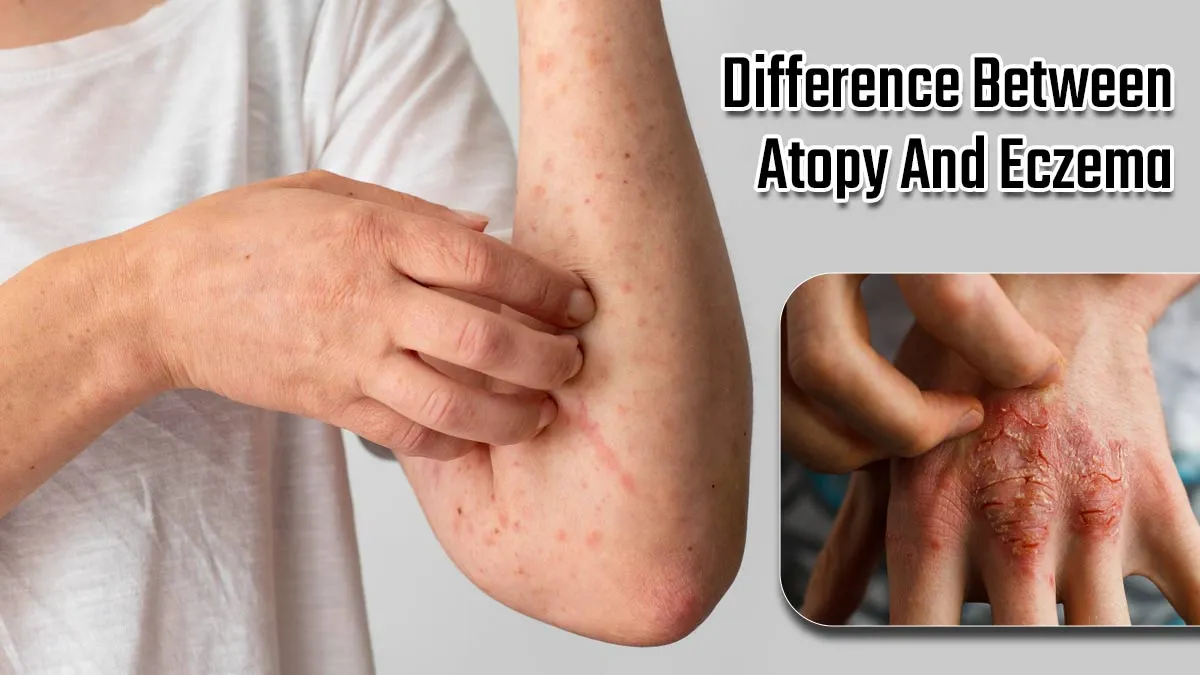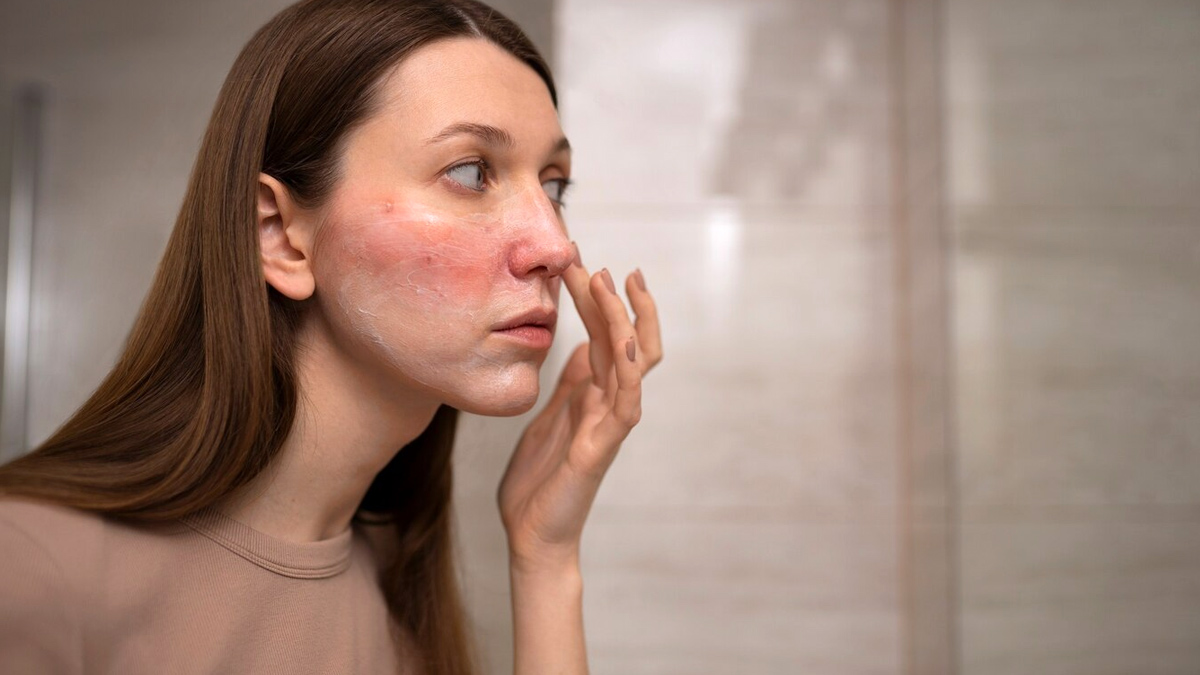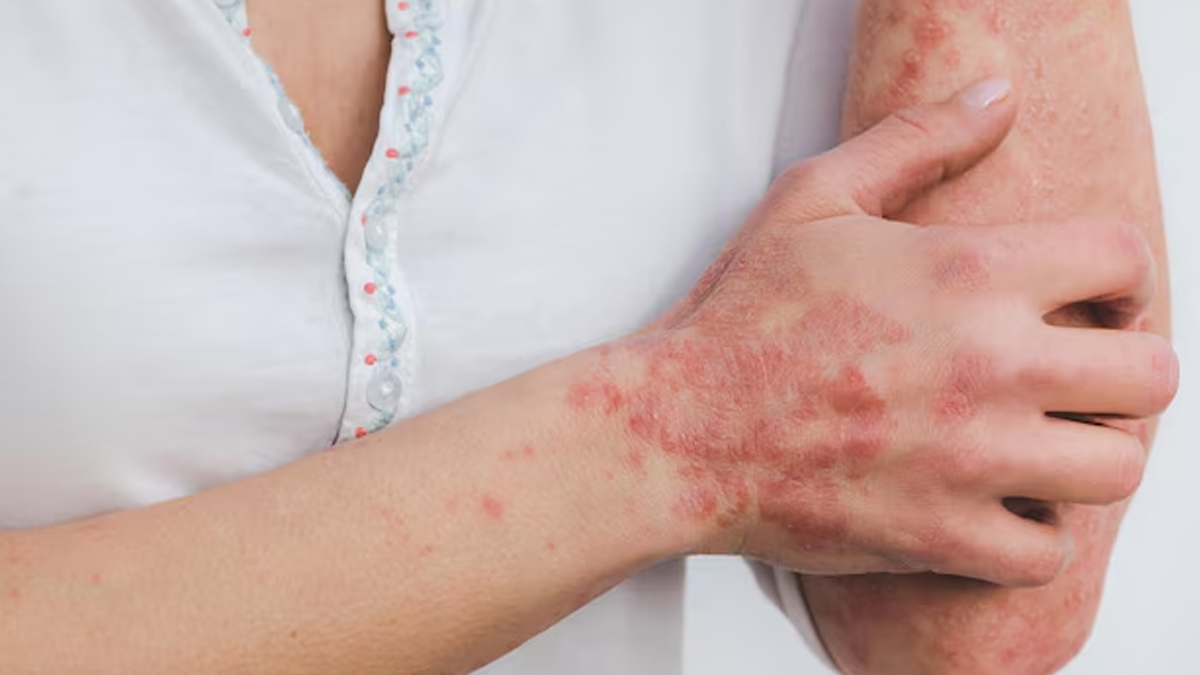
If you’ve ever dealt with itchy, dry, or inflamed skin, you might have heard terms like atopy and eczema used interchangeably. But are they truly the same thing? While both conditions share similar symptoms like redness, flakiness, and relentless itching, they stem from different root causes and require distinct approaches to care. Understanding the differences is key to effective treatment, especially since misdiagnosis can lead to prolonged discomfort. Let’s unravel the confusion between these ‘skin cousins’ and learn how to identify which condition you or your loved one might be facing.
Table of Content:-
Understanding Atopy and Eczema
View this post on Instagram
Atopic dermatitis and eczema are often mistaken for one another, but they’re not identical. Dr Tina Ramachander, Medical Director, Dr Tina’s Skin Solutionz, Bangalore, clarifies: “Atopic dermatitis is a specific type of eczema, but not all eczema is atopic. Think of atopy as a branch on the eczema family tree.”
Key Differences Between Atopy and Eczema
Dr Ramachander breaks down how to distinguish these conditions:
Family History Matters
- Atopic Dermatitis: Strongly linked to a family history of allergies (e.g., asthma, hay fever).
- Eczema: Typically lacks a genetic allergy connection.
Age of Onset
- Atopic Dermatitis: Common in infants/young children, often appearing before age 5.
- Eczema: Can develop at any age, including adulthood.
Affected Areas
- Atopic Dermatitis: Targets body folds (elbows, knees), face, and buttocks.
- Eczema: Often appears on hands, fingertips, or in widespread areas.
Seasonal Patterns
- Atopic Dermatitis: Flares year-round.
- Eczema: Worsens in dry, cold winters.
“Atopic dermatitis is like a genetic alarm system overreacting to triggers,” explains the expert. General eczema lacks this inherited hypersensitivity.
What the Research Says

A 2021 study in The British Journal of Dermatology analyzed 2,000 patients with itchy skin conditions. Researchers found:
- 72% of childhood cases with family allergy histories were diagnosed as atopic dermatitis.
- 68% of adults with hand eczema had no genetic links to allergies.
- This highlights how family history and age play critical roles in diagnosis.
Why Proper Diagnosis Matters
Mislabeling these conditions can delay relief. For example:
- Atopic dermatitis may require allergy testing and long-term immune management.
- General eczema often improves with moisturizing and avoiding irritants like harsh soaps.
The expert adds: “Parents often panic when their child has red patches. If the rash is in body folds and there’s a family history of allergies, it’s likely atopy—not regular eczema.”
ALSO READ: What Is the Difference Between Dandruff and Dry Scalp Buildup?
Managing Symptoms: Tips for Both Conditions

While treatments differ, these steps help soothe both issues:
- Moisturise Daily: Use fragrance-free creams to repair the skin barrier.
- Avoid Triggers: Skip wool fabrics, overheating, or scented products.
- Cool Compresses: Reduce itching with a damp, cool cloth on affected areas.
When to See a Specialist
Consult a dermatologist if:
- Rashes ooze fluid or show signs of infection (yellow crusts, warmth).
- Over-the-counter creams fail after 2 weeks.
- Sleep or daily activities are disrupted by itching.
ALSO READ: Does Kajal Make Eyes Look Bigger? A Dermatologist Explains the Truth and Illusion
Conclusion
While atopic dermatitis and eczema may look similar at first glance, understanding their distinct causes and patterns can lead to better care and faster relief. Atopy's strong family ties and preference for skin folds set it apart from eczema, which often appears suddenly and worsens with seasonal changes. By paying attention to where rashes develop, your family history, and how symptoms evolve, you can take more targeted steps toward soothing irritated skin. Remember, persistent or severe cases should always be evaluated by a dermatologist.
Also watch this video
How we keep this article up to date:
We work with experts and keep a close eye on the latest in health and wellness. Whenever there is a new research or helpful information, we update our articles with accurate and useful advice.
Current Version